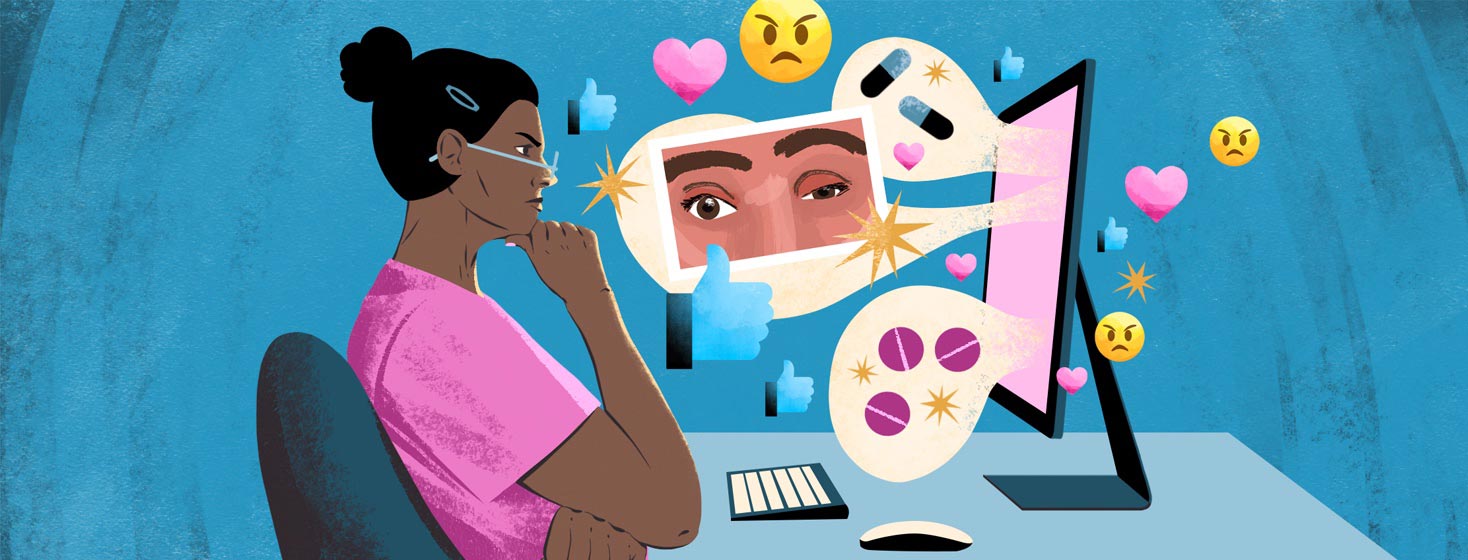Social Media and Myasthenia Gravis Support
With a diagnosis of myasthenia gravis (MG) often comes a sense of intense loneliness. The disease is rare. The symptoms are mostly internal. Despite that ptosis wink, others often cannot see the signs of weakness that a person experiences. Even good medical support can’t always dispel the deep sense that "I cannot find anyone who understands what I’m feeling."
That’s why social media communities centered around a condition are so important. There may not be anyone else with MG on your block or in your community, but people can be found online who really understand.
Using caution online
But like many other virtual spaces, a community of strangers can be a blessing or a potential trap. Here are some cautions.
Online, people can share symptoms and potential solutions. They can vent and occasionally celebrate. But they can also magnify that sense of doom, and even spread dangerous misinformation.
Discussions that throw in random, unrelated symptoms can be confusing. So it is worthwhile to think about how to evaluate, use, and hopefully gain support from online communities.
Consider the source
How do you judge an online community? Online groups come in 2 general categories: moderated and unmoderated. This site (Myasthenia-gravis.com) is carefully moderated, with a team that meets frequently and has a panel of experts to check out tricky questions.
At the opposite end of the spectrum are groups that have no moderation or guidelines at all. These sites can bring people together who may be sharing a lot of misinformation.
And of course, there are shades of grey. A group might have a technical moderator but only enforce the most basic rules: no violence, blatant attacks, or advertising.
Medical advice
Communities formed around medical issues have inherent dangers. It’s great if people share insights and empathy. But some may go to the site instead of to professionals for medical advice. That can be a real trap. This might illustrate the point:
"I’ve just started Mestinon. My stomach is rolling. Does anyone else react that way?"
That’s constructive. If someone realizes that their symptom is common, they might then reach out to a pharmacist or their physician to confirm that it might be related to the drug and get suggestions for relief.
But self-treatment should not be the end result: "I am experimenting with the timing of my Mestinon to reduce digestive problems. Does anyone have a good dosage scheme?"
Check in with your doctor
This becomes even more complicated when the group sharing non-professional advice is international. The rules to obtain drugs or treatments can be totally different outside of the United States.
Posts about drugs and dosages might reflect real advice shared by a doctor or pharmacist — but that advice would be designed for a specific individual. Or it might reflect someone’s experimentation.
Posters can sometimes share natural remedies that they have tried, like herbs or diets, in a constructive way. Even then, it’s important to add cautions: "I checked with my doctor and this seemed to help me. Check with yours."
Be cautious about any post that suggests that the author is freewheeling medical advice without appropriate guidance.
Constructive discussions
For all these reasons, use great care when taking or giving advice — especially online. Sharing experiences can be a tremendous asset and a real solution to "medical loneliness." But as you can see above, there are right and wrong ways to do it.
Online discussions can sometimes help a person prepare for conversations with their medical team. One might never have considered that a symptom could be related, or taken it very seriously.
Becoming aware of something that might be relevant and taking a few notes for the next visit to your physician is a great way to use those online discussions constructively.
Encouraging others
Online groups can be tremendous sources of support, but they can be real downers as well. Many unmoderated groups include participants who simply post every symptom they have and try to see if others do, too.
That’s both confusing and potentially dangerous. Logging or journaling, and local experts to help you understand your own symptoms, are the keys.
On the sunny side, reports from people who have come through diagnosis and treatment and have success stories to share can be invaluable for information and motivation. Myasthenia gravis drugs work slowly and it can be hard some days to see a light at the end of a tunnel. Responsibly reporting even small steps forward can encourage others.
We’re glad you are here
Don’t let the potential negatives of online communities discourage you from participating in the good ones. But always look for the "cred."
Check out the sources that participants are using. (Note that many of the posts on this site have links to very strong sources of information.) Then your online community can be the start of great relationships.

Join the conversation